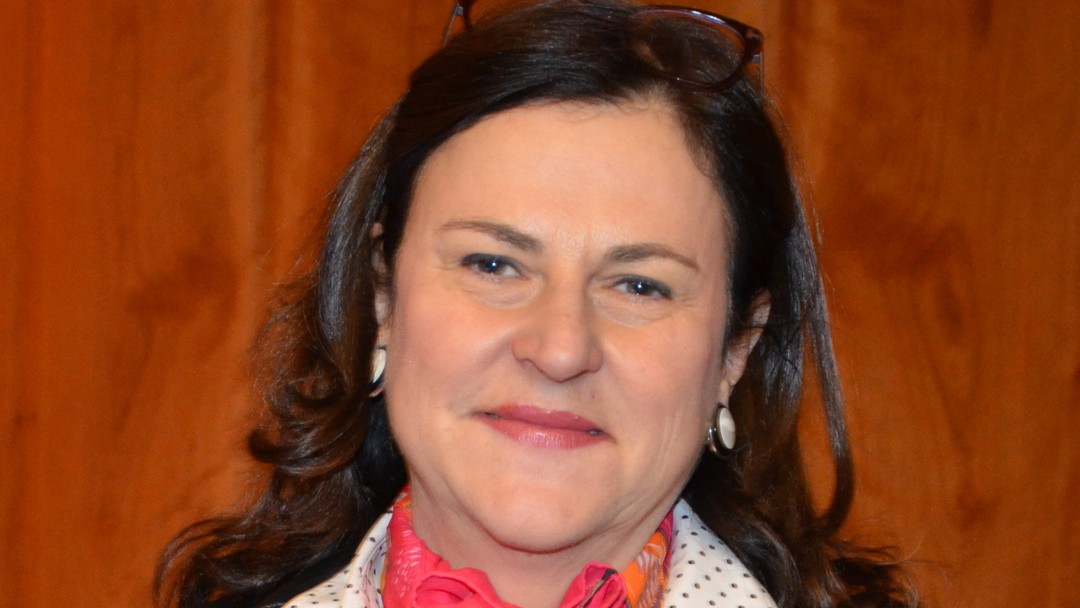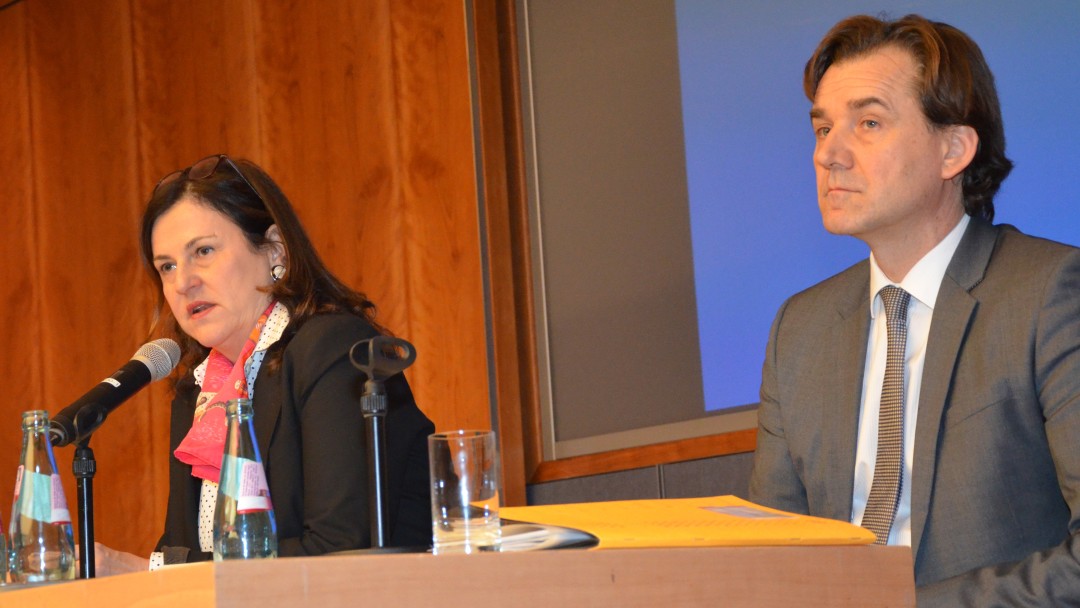News from 2017-02-02 / KfW Development Bank
Maintaining a dialogue
Katarina Mathernova from DG NEAR discusses the EU Neighbourhood Policy
Katarina Mathernova, Deputy Director General of the Directorate-General for Neighbourhood and Enlargement Negotiations (DG NEAR) argued that it is in Europe's own interests to maintain a dialogue with neighbouring countries for reasons relating to its own security, stability and securing prosperity. At the KfW Development Forum in Frankfurt, she spoke about the cooperation between the EU and its neighbouring countries as well as the new EU initiative working to combat the causes of displacement, the External Investment Plan (EIP).
"It was a good opportunity to take stock and to review our own priorities", said Katarina Mathernova about the founding of the Directorate-General two years ago, which was the result of a merger between the Directorate-General for Enlargement and the "Neighbourhood Policy" department, which at the time was part of the DG DEVCO (Directorate-General for International Cooperation and Development). With hindsight, it appeared that the EU needs to concentrate on three focus areas in its cooperation with neighbouring regions: the promotion of democracy, economic efficiency and development of public administration.
Mathernova held up Ukraine as a shining example of when these points are implemented successfully. Despite all of the political and military crises which have taken place in Ukraine, a lot has been achieved there: it has been possible to bring the budget deficit down to under 20%, the banking sector has been modernised and corruption has been forcefully combated. Mathernova expressed her confidence that further progress can be made in Ukraine.
EUR 1.4 billion and EUR 1.3 billion in support was allocated to neighbouring regions in 2015 and 2016 respectively; EUR 200 million of this went to Ukraine each year. The EU has made EUR 1.5 billion available per year in 2015 and 2016 for the Instrument for Pre-Accession Assistance (IPA) in order to support enlargement countries.
A portion of these funds is used to provide financial support to Turkey. In addition to this, EUR 3 billion is being spent for supporting refugees and host communities (Facility for Refugees in Turkey/FRiT) for the period from 2016 to 2017. Mathernova hailed the EU "deal" with Turkey as a success. She stressed that it is extremely important to maintain a dialogue with Turkey. At the end of 2016, DG NEAR suggested that the customs union between the EU and Turkey should be modernised. This would offer an opportunity to continue a dialogue without directly touching on the issue of EU accession.

Mathernova then presented the three columns of the new European External Investment Plan (EIP). The investment offensive is the EU's contribution to managing the migrant crisis in transit countries and countries of origin and to international climate and development goals. Initially it will concentrate on Africa and the neighbouring regions. A key component of the EIP is the European Fund for Sustainable Development (EFSD), which consists of approximately EUR 2.6 billion for investments as well as around EUR 1.5 billion for a new guarantee scheme (EFSD Guarantee). The objective is to achieve an investment volume of up to EUR 44 billion.
During the subsequent discussion, Mathernova explained that the issue of security as it relates to Neighbourhood Policy will become increasingly important in the future. Asked about the EU's climate policy, she emphasised that many of the European support measures for Eastern Europe are focused on the priority area of energy efficiency. "At the European Commission, energy efficiency is my middle name", she joked.


Share page
To share the content of this page with your network, click on one of the icons below.
Note on data protection: When you share content, your personal data is transferred to the selected network.
Data protection
Alternatively, you can also copy the short link: https://www.kfw-entwicklungsbank.de/s/enzBWrMC.Bg_A
Copy link Link copied